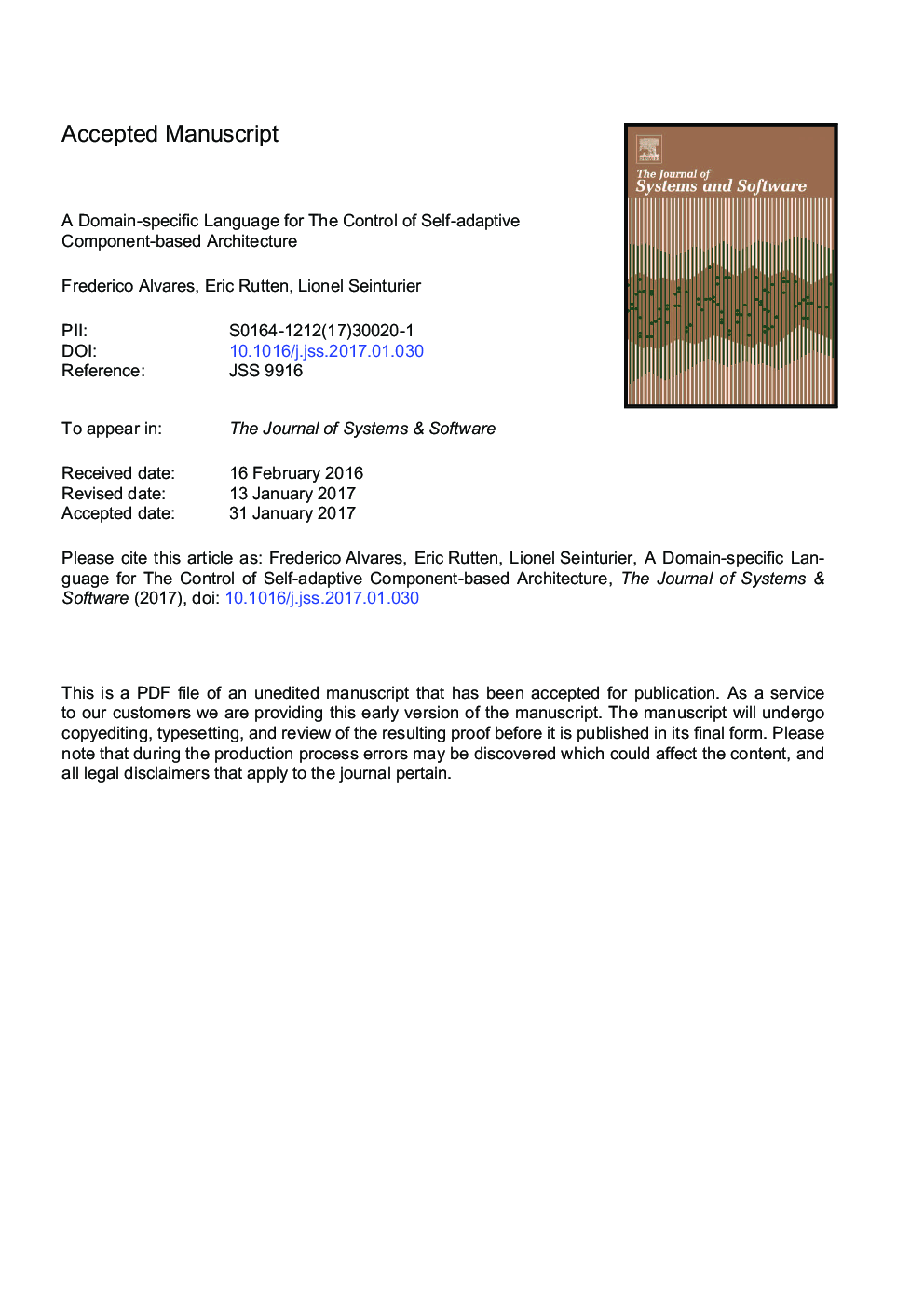| Article ID | Journal | Published Year | Pages | File Type |
|---|---|---|---|---|
| 4956330 | Journal of Systems and Software | 2017 | 24 Pages |
Abstract
Self-adaptive behaviours in the context of Component-based Architecture are generally designed based on past monitoring events, configurations (component assemblies) as well as behavioural programs defining the adaptation logics and invariant properties. Providing assurances on the navigation through the configuration space remains a challenge. That requires taking decisions on predictions on the possible futures of the system in order to avoid going into branches of the behavioural program leading to bad configurations. We propose the design of self-adaptive software components based on logical discrete control approaches, in which the self-adaptive behavioural models enrich component controllers with a knowledge not only on events, configurations and past history, but also with possible future configurations. This article provides the description, implementation and discussion of Ctrl-F, a Domain-specific Language whose objective is to provide high-level support for describing these control policies. Ctrl-Fis formally defined by translation to Finite State Automata models, which allow for the exploration of behavioural programs by verification or Discrete Controller Synthesis, i.e., by automatically generating a controller to enforce correct self-adaptive behaviours. We integrate Ctrl-F with FraSCAti, a Service Component Architecture middleware platform and we illustrate the use of Ctrl-Fby applying it to two case studies.
Related Topics
Physical Sciences and Engineering
Computer Science
Computer Networks and Communications
Authors
Frederico Alvares, Eric Rutten, Lionel Seinturier,
